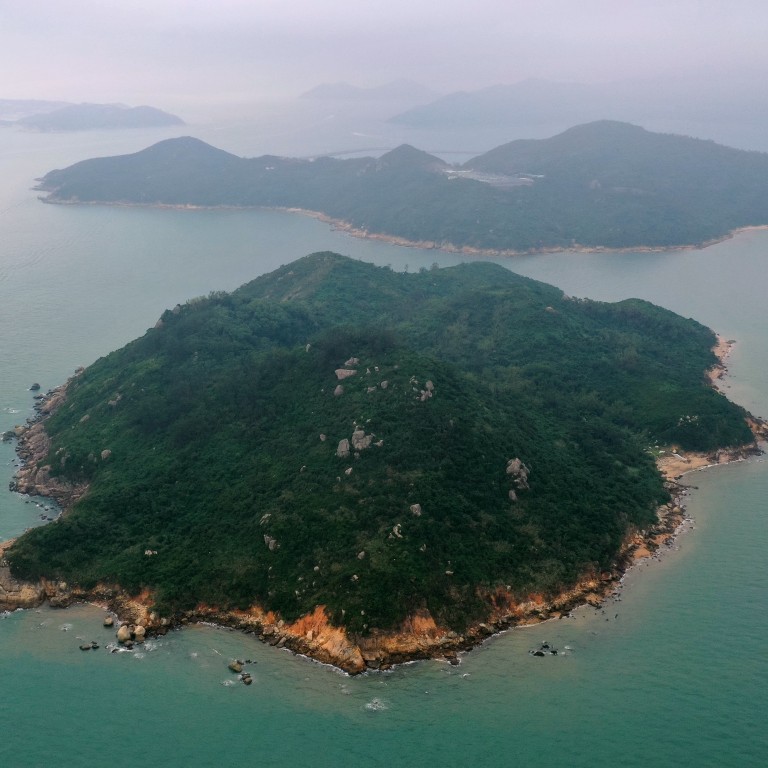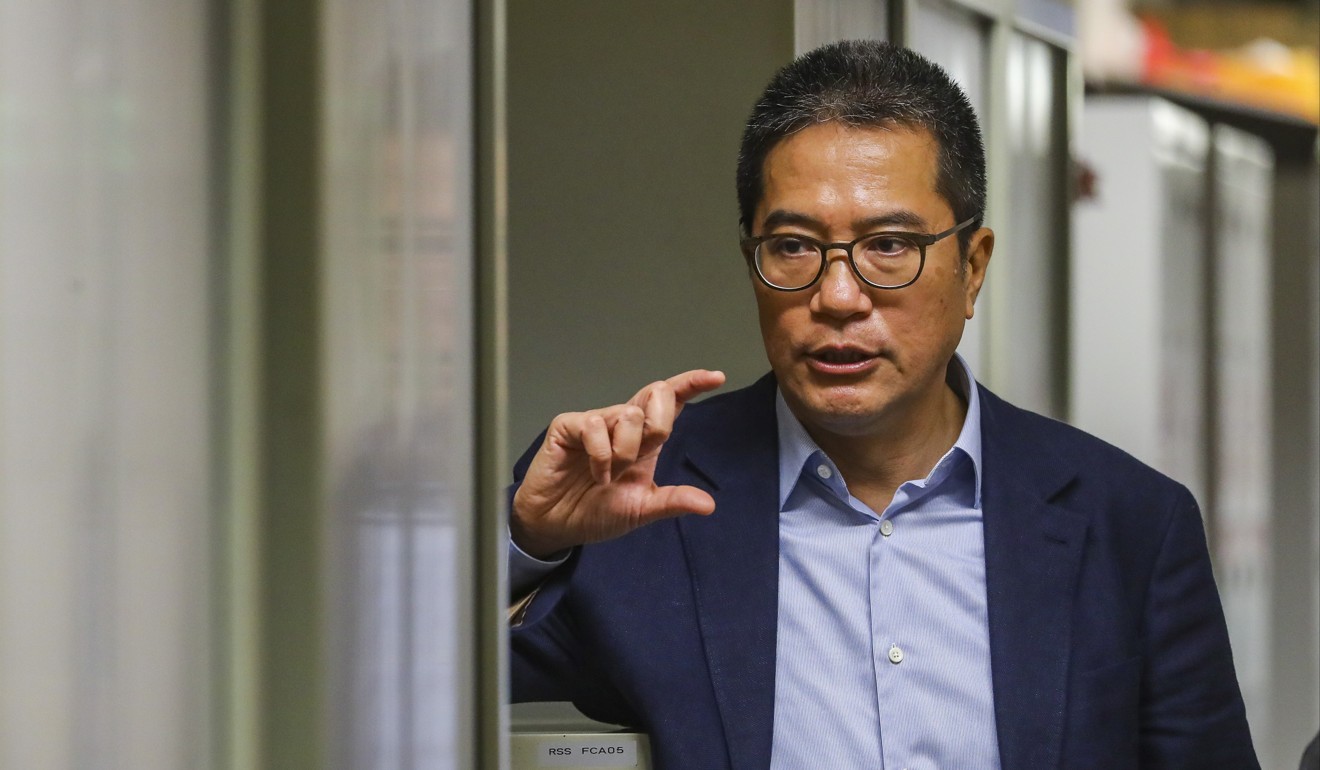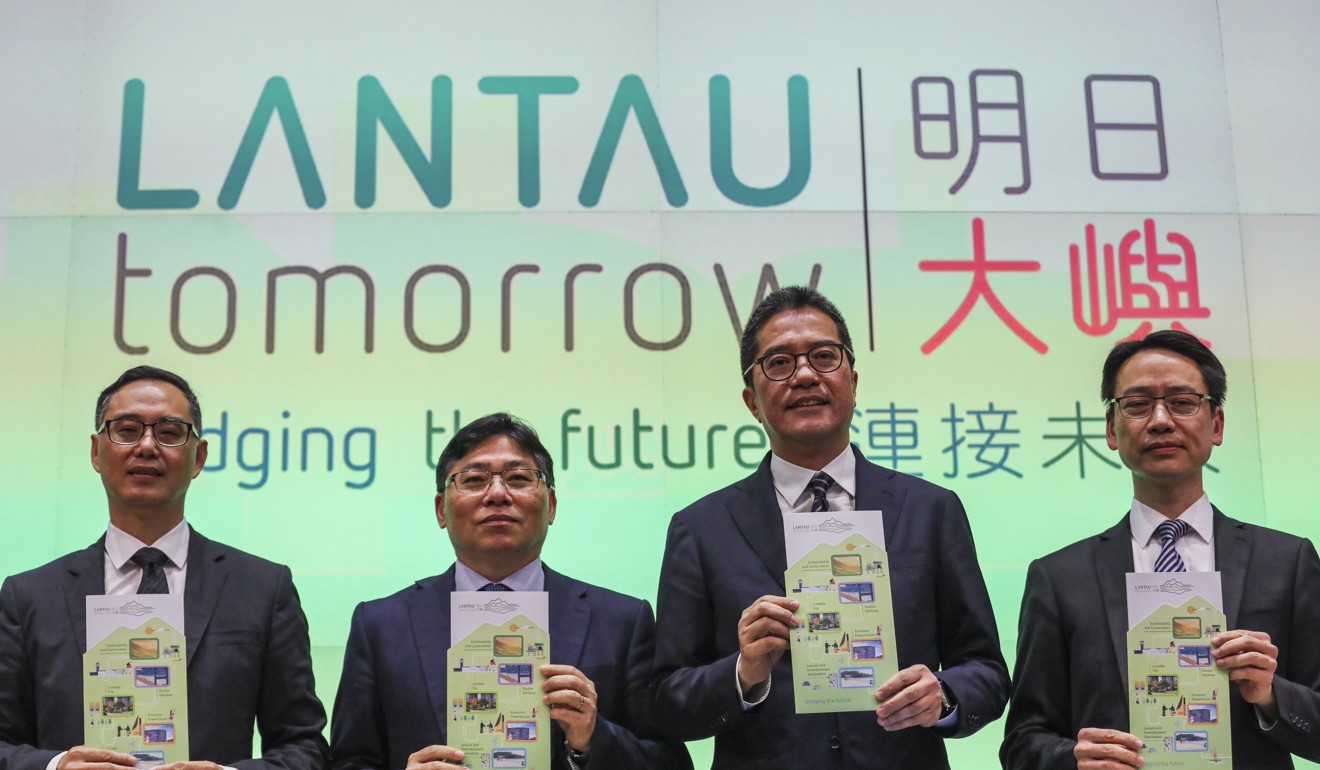
Land revenue growth likely to offset possible Lantau Tomorrow Vision budget overruns says Hong Kong development minister
- Even if mega project’s budget rises due to inflation, land prices may rise at a higher rate and more than make up for it, says Michael Wong
- Government will request HK$500 million funding to conduct feasibility studies over 42 months, after which the budget estimate will be revised
The final cost of building the new metropolis near Lantau Island could exceed the estimated HK$624 billion (US$79.5 billion) as a result of inflation, the development minister said on Wednesday but he also stressed that land revenues accruing from the project would increase at an even faster rate.
Secretary for Development Michael Wong Wai-lun was responding to speculation and fears that the project could end up costing HK$1 trillion.
Citing official statistics, he said only 11 per cent of Hong Kong’s costliest projects – those priced at over HK$30 million – had gone over budget in the past decade.
Wong made the assurance a day after he unveiled details of Lantau Tomorrow Vision, the most expensive infrastructure project in the city’s history.
The minister said that while inflation meant building artificial islands to the west of Hong Kong Island would likely cost more than HK$624 billion, revenue would also rise in the meantime.
“When we look at the past, in fact most of the time, the growth rate of land prices was greater than the general inflation rate,” he said on Wednesday.

“It won’t [leave the treasury penniless] because the income generated would also increase,” Wong said.
The project would involve building 1,000 hectares of land in waters off Lantau Island, around Kau Yi Chau, and land reclamation in Sunny Bay and near Lung Kwu Tan in Tuen Mun.
It would also necessitate a new transport network to create Hong Kong’s third business district and housing hub.
Authorities expected the artificial islands to provide up to 260,000 flats, 70 per cent of which would be set aside for public housing.
Wong had suggested the huge cost would eventually be recouped, citing what he called a conservative estimate by the Institute of Surveyors which put the potential land revenue from the artificial islands at between HK$974 billion and HK$1.143 trillion.
But critics, such as Greenpeace campaigner Andy Chu Kong, have voiced concerns about cost overruns.
“Looking at the government’s past record on infrastructure, every time there was a cost overrun. So when the secretary yesterday said it would be some HK$600 billion, we believe it is likely to go beyond this cost,” Chu said.

On Wednesday, Wong said the government could afford the estimated bill, as construction costs might fluctuate. From 2007 to 2015, the tendering price of civil engineering works nearly doubled, but in the subsequent two years, prices dropped by 25 per cent, he said.
The minister reiterated that the cost estimate announced on Tuesday was a rough prediction and no upper or lower error limits were set.
A HK$500 million funding request would be sent to the legislature to conduct feasibility studies over 42 months. After that, the estimate would be updated.
But Chu was not convinced by the reclamation plan.
“Land sale is not a guaranteed income,” he said.

Chu also pointed out that the government had failed to secure a tender for a commercial plot on the runway of Hong Kong’s old airport at Kai Tak earlier this year.
He asked why the government did not develop brownfield first and why officials had still not rolled out the results of its study on the existing profile and operations of such sites, which are typically recycling facilities or scrapyard on wasted farmland.
Wong rejected the criticism and explained that officials needed more time to conduct the study.
He promised that the study, which was expected to be completed in 2018, would be ready later this year and policy proposals would be pushed forward based on it.
The city’s sole delegate to China’s top legislative body Tam Yiu-chung also weighed in on the debate on Wednesday, saying reclaimed land would have economic value and bring economic benefits.
But he called on officials to manage construction projects better and spread them out to control the cost.

